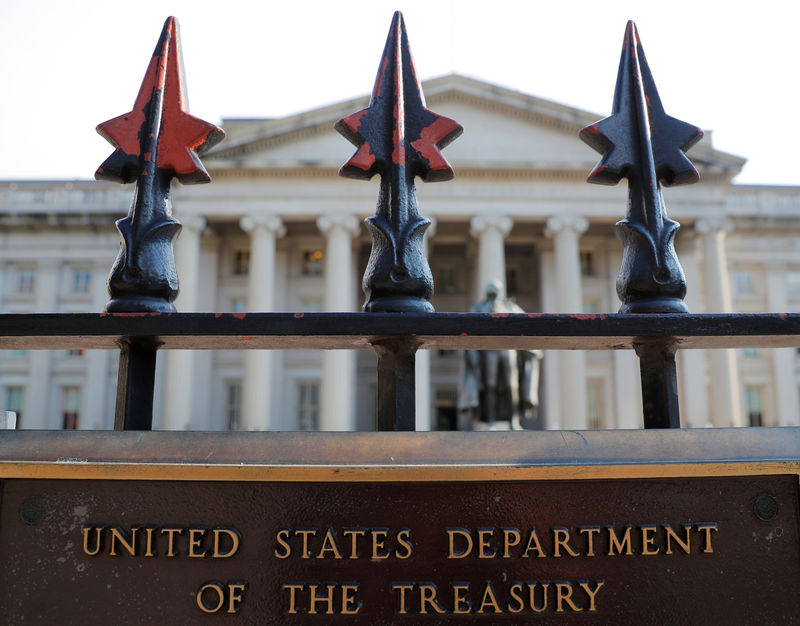By Karen Brettell
NEW YORK (Reuters) - Benchmark U.S. Treasury yields rose on Friday on a report that Germany may be open to running a deficit to boost growth, while stronger stock markets also reduced demand for safe haven debt.
Government bond yields plunged this week on concerns about global growth and the closely-watched U.S. yield curve between two-year and 10-year notes inverted for the first time since 2007 on Wednesday, signaling a U.S. recession is likely in one-to-two years.
As economic data worsens, central banks globally are expected to adopt increasingly dovish monetary policies to loosen financial conditions.
With much of the European government bond market offering negative yields, however, there is concern that central banks are out of ammunition and that governments will need to turn to fiscal stimulus to bolster their economies.
Treasury yields jumped after Der Spiegel magazine reported that Germany's right-left coalition government would be prepared to ditch its balanced budget rule and take on new debt to counter a possible recession.
Benchmark 10-year notes were last down 6/32 in price to yield 1.547%, up from a three-year low of 1.475% on Thursday.
Concerns about growth are expected to remain as the U.S.-China trade war shows no signs of resolution.
“The market is attempting to gauge the extent, duration and magnitude of the fallout from the trade war,” said Ian Lyngen, head of U.S. rates strategy at BMO Capital Markets in New York.
Trade tensions likely contributed to a drop in consumer sentiment early this month, which fell to its lowest level since January.
The Federal Reserve is seen as certain to cut rates when it meets next month, despite saying in July that further rate decreases may not be needed following its first cut in over a decade.
Interest rate futures traders are pricing in an 81% chance of a 25-basis-point cut in September and a 19% chance of a 50-basis-point one, according to the CME Group’s FedWatch tool.
Fed Chairman Jerome Powell is due to speak at the Fed’s economic symposium in Jackson Hole, Wyoming, on Aug. 23. His comments will be closely evaluated for any shift in his stance on future easing.

Plunging yields across the globe have also sent investors to longer-dated debt to capture returns. Thirty-year Treasury bond yields fell to a record low of 1.916% on Thursday. They were last 2.008%.